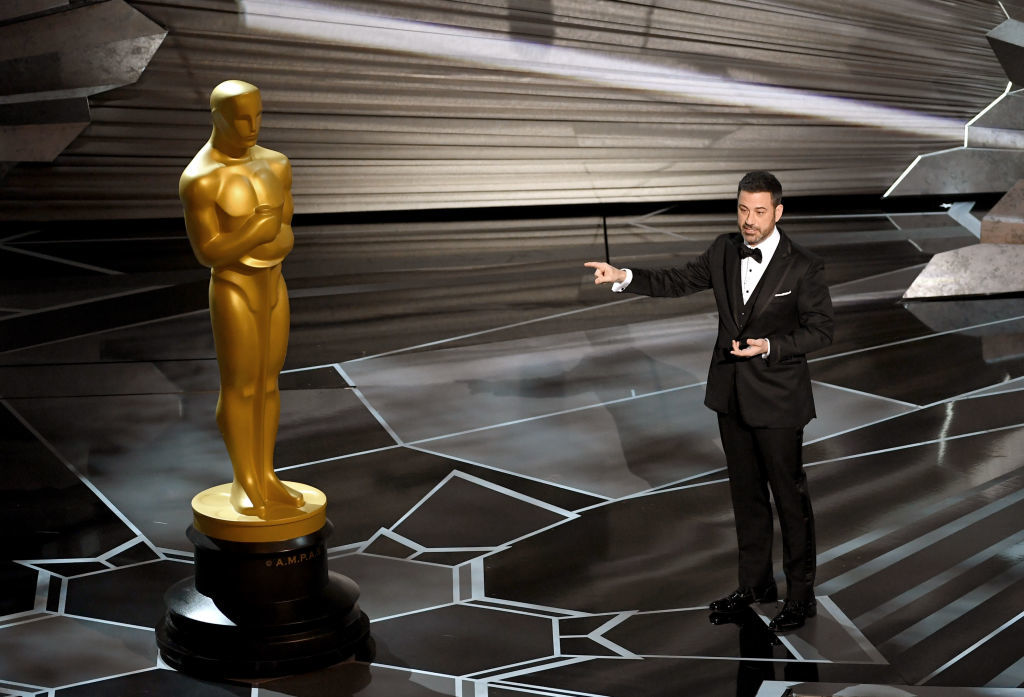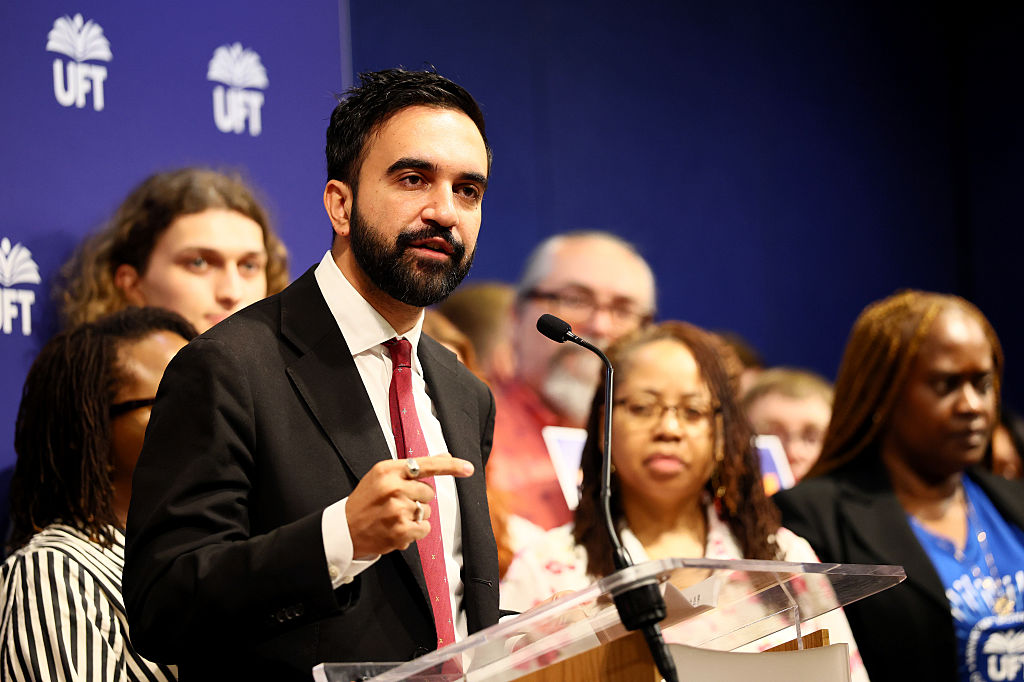It was always going to be difficult for this year’s Oscars to balance politics and entertainment, the sweeping declaration with the plunging cleavage. The host, Jimmy Kimmel, got through his opening routine well enough, and without showing his cleavage either, but the strain was already showing.
The décor and the script were like a moral split-screen. We were told to celebrate ninety years of the Oscars, while disapproving of nine decades of exploitation and sleaze, some of it practised by people sitting in the audience at the Dolby Theater. What we got was easy jokes about Harvey Weinstein and Donald Trump, and pompous announcements that it was time to send the casting couch back to the props’ store. Considering the political mood, this was weak stuff. And who really wants a four-hour lecture about tolerance and difference from a rotating cast of idiots whose faces all seem to have been palsied by the same Botox-crazed surgeon?
The wheels came off after about ninety-minutes, when the Oscar for Best Short Film went to Dear Basketball. Ninety minutes is about the length of a film, so perhaps it is unfair to expect coherence beyond that point. Possibly Dear Basketball is the Citizen Kane of short films; I haven’t seen it. But was it really a good idea, in this the age of #MeToo and Time’s Up, to give an Oscar to Dear Basketball’s executive producer, the ex-NBA player Kobe Bryant? In fact, is it a good idea to give Kobe Bryant an award for anything at all?
In 2003, police in Colorado charged Bryant with sexually assaulting a 19-year old female hotel employee. At first, Bryant denied having had sex with her. Then, when the police produced evidence and asked him about bruising to the woman’s neck, he changed his story. He admitted to ‘strangling’ her, but insisted that the sex had been consensual; Bryant, the old romantic, said that he made a point of strangling all his sexual partners, but not his wife.
The police’s case did not go to court, because Bryant’s accuser, for unspecified reasons, refused to testify. Soon afterwards, Bryant settled a civil suit before it reached court. The terms of the deal remain secret, apart from a public apology in which Bryant acknowledged, ‘I now understand how she feels that she did not consent to this encounter.’
Similarly tone deaf was the attempt to thank us, the little people, for buying all those tickets. Somewhere in the third hour, by which time I was starting to lose the will to live, Kimmel announced that he was going to lead a group of stars into the movie theatre across the street, so they could hand out candy and hot dogs. How the stars in the Dolby Theater laughed! Off the brave platoon of stars went, to bravely plunge into a movie theatre full of real people. You know the sort: fat people, ugly people, poor people. When the screen showed the stars in the Dolby Theater, the uglies waved loyally. The stars did not wave back. Let them eat Sour Patch!
People still like going to the movies. 2016 was a record year for ticket sales, and Black Panther passed the $500m mark over the weekend. But the Oscars are indulgent, overlong, and weirdly amateurish. The ratings have been sliding for years. In 2000, 46.5m Americans had nothing better to watch on a Sunday night. By 2008, with television programs watchable online, the Oscar audience had fallen to 31.8m. It has recovered since, but not by much: 32.9m people watched 2017’s epic, though most of them had turned off and gone to bed by the time a non-famous and now non-employed functionary handed Warren Beatty and Faye Dunaway the wrong envelope for Best Picture.
There were no fumbles last night, only the usual self-indulgent and enervating mix of showbiz, patriotism and raging egotism—cabaret numbers about racial oppression, a tribute to the armed services for making America safe for film-making, and the false humility of egomaniacs in the hour of their triumph. As you’ll know by now, the Best Actor went to Winston Churchill. The Best Picture and Best Director went to The Shape of Water, a film which is the best advertisement for bestiality since Splash.

























